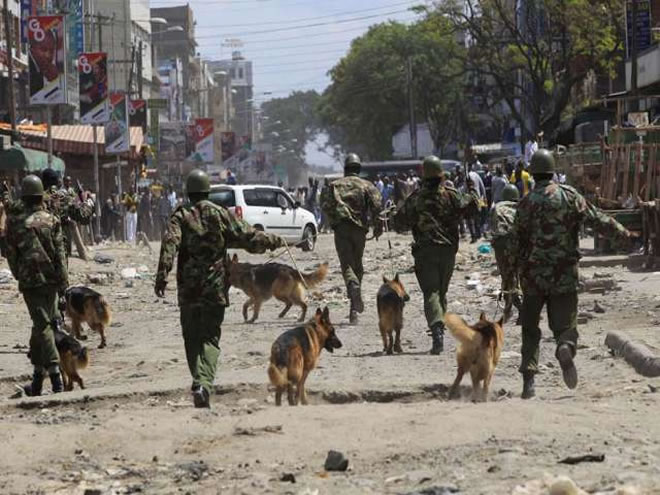
87 percent of those who joined Al-Shabaab complained of discrimination against their community and Islam

Thursday, October 16, 2014
The Kenyan government's approach to terrorism may be driving some of the youths to extremism, according to a new report on radicalization in Kenya released on Wednesday by an African think-tank.
"Some Muslims have decided to join Al-Shabaab after witnessing their religion being attacked and a number of famous Muslim scholars and leaders assassinated while the government did little to catch the perpetrators," Anneli Botha, senior researcher at the Pretoria-based Institute for Security Studies, told Anadolu Agency on the sideline of the report launch in Nairobi.
"This has sent the message that nothing is being done," she said.
Over the past three years the researcher interviewed 95 individuals who are directly connected to Somali militant group as well as 46 of their relatives.
All of the interviewees were Kenyans, Somalis or Kenyans of Somali origin from North Eastern Kenya.
Botha said they had prepared the report to understand how radicalization in Kenya occurs.
"No one has ever attempted to release a report about how the youth find themselves entangled within the militants' affairs," she said.
"We needed to know how the recruitment to Al-Shabaab works; why the youth are targeted and the driving force behind the radicalization," added the researcher.
Injustices
Botha said nearly 87 percent of those who joined Al-Shabaab complained of discrimination against their community and Islam.
"Most of the people we spoke to don't feel as if they belong to Kenya, especially the over 2.3 million Kenyan-Somali people who were born in Kenya," she told AA.
"They believe as long as you are a Muslim and you have the Somali aspect in you they you don't belong in Kenya," added the researcher.
"Most of them blamed injustice by the Kenyan forces," she said.
The report reveals that none of the respondents cited economic reasons as their motivation for joining the militant group.
"Zero of them blamed poverty as being their reason for joining Al-Shabaab," asserted Botha.
"Some 97 percent of those we have interviewed felt that their religion, Islam, is being under threat," she said, noting that this was their final push into joining the militant organization.
When asked what kind of threat, added the researcher, the majority of them cited physical threat.
She said that 87 percent of the respondents admitted to hating other religions.
According to her, that hate was reciprocation for the hate they felt was directed towards Islam.
"They are treated as second rate citizens," said Botha. "They are being blamed for anything that goes wrong.
"So, it is based on that feeling of frustration that people develop this hatred towards the other because the other becomes the enemy," explained the researcher.
She added that some of the respondents described governments as being used as puppets by the U.S.
"They referred, for example, the way Muslims are treated in Somalia, Palestine, Iran and Afghanistan," she said.